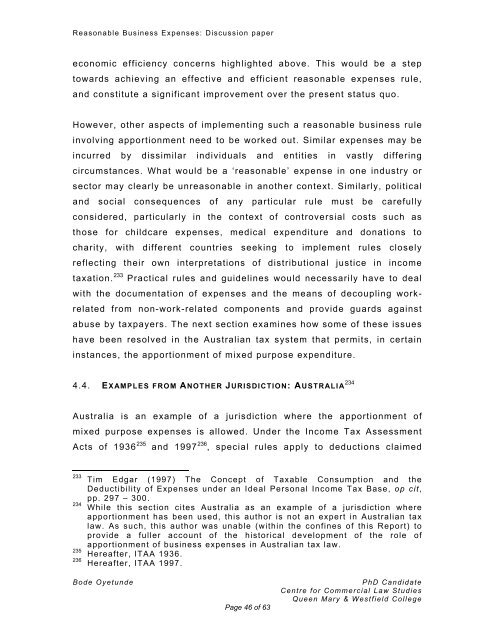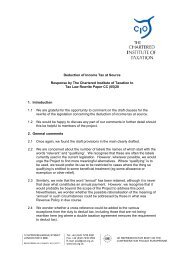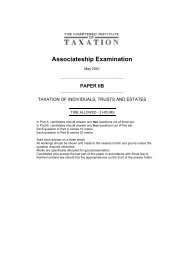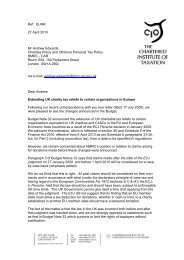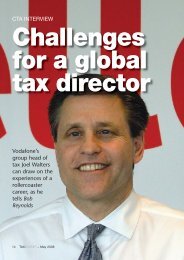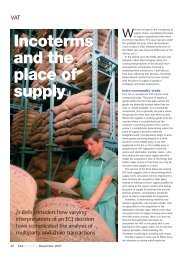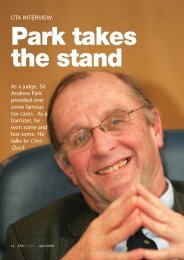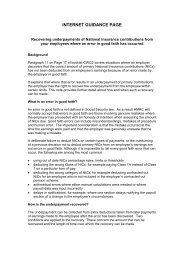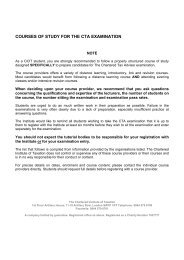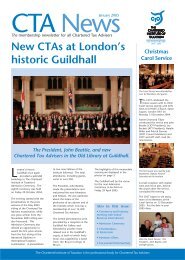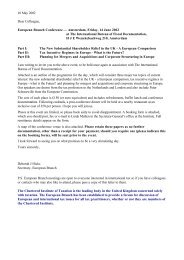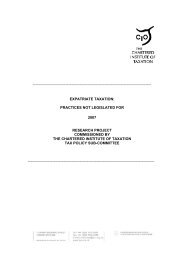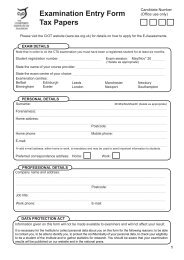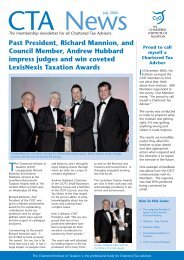Reasonable Business Expense - The Chartered Institute of Taxation
Reasonable Business Expense - The Chartered Institute of Taxation
Reasonable Business Expense - The Chartered Institute of Taxation
You also want an ePaper? Increase the reach of your titles
YUMPU automatically turns print PDFs into web optimized ePapers that Google loves.
<strong>Reasonable</strong> <strong>Business</strong> <strong>Expense</strong>s: Discussion papereconomic efficiency concerns highlighted above. This would be a steptowards achieving an effective and efficient reasonable expenses rule,and constitute a significant improvement over the present status quo.However, other aspects <strong>of</strong> implementing such a reasonable business ruleinvolving apportionment need to be worked out. Similar expenses may beincurred by dissimilar individuals and entities in vastly differingcircumstances. What would be a ‘reasonable’ expense in one industry orsector may clearly be unreasonable in another context. Similarly, politicaland social consequences <strong>of</strong> any particular rule must be carefullyconsidered, particularly in the context <strong>of</strong> controversial costs such asthose for childcare expenses, medical expenditure and donations tocharity, with different countries seeking to implement rules closelyreflecting their own interpretations <strong>of</strong> distributional justice in incometaxation. 233 Practical rules and guidelines would necessarily have to dealwith the documentation <strong>of</strong> expenses and the means <strong>of</strong> decoupling workrelatedfrom non-work-related components and provide guards againstabuse by taxpayers. <strong>The</strong> next section examines how some <strong>of</strong> these issueshave been resolved in the Australian tax system that permits, in certaininstances, the apportionment <strong>of</strong> mixed purpose expenditure.4.4. EXAMPLES FROM ANOTHER JURISDICTION: AUSTRALIA 234Australia is an example <strong>of</strong> a jurisdiction where the apportionment <strong>of</strong>mixed purpose expenses is allowed. Under the Income Tax AssessmentActs <strong>of</strong> 1936 235 and 1997 236 , special rules apply to deductions claimed233234235236Tim Edgar (1997) <strong>The</strong> Concept <strong>of</strong> Taxable Consumption and theDeductibility <strong>of</strong> <strong>Expense</strong>s under an Ideal Personal Income Tax Base, op cit,pp. 297 – 300.While this section cites Australia as an example <strong>of</strong> a jurisdiction whereapportionment has been used, this author is not an expert in Australian taxlaw. As such, this author was unable (within the confines <strong>of</strong> this Report) toprovide a fuller account <strong>of</strong> the historical development <strong>of</strong> the role <strong>of</strong>apportionment <strong>of</strong> business expenses in Australian tax law.Hereafter, ITAA 1936.Hereafter, ITAA 1997.Bode OyetundePage 46 <strong>of</strong> 63PhD CandidateCentre for Commercial Law StudiesQueen Mary & Westfield College


